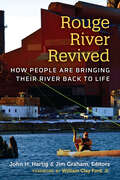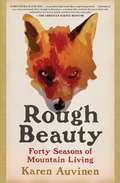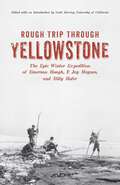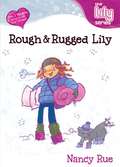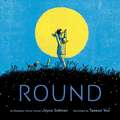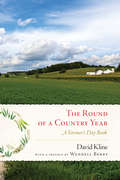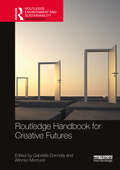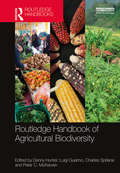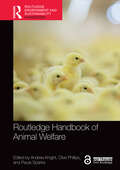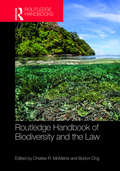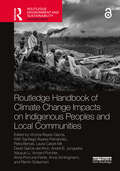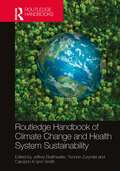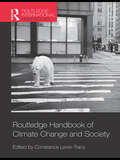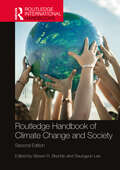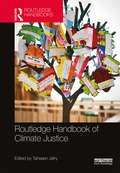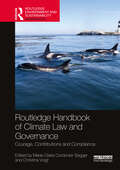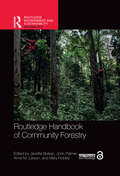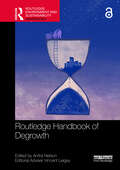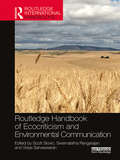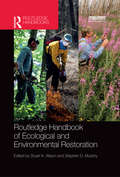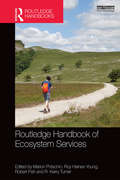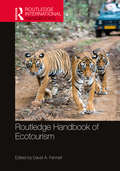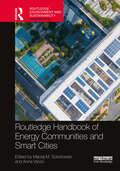- Table View
- List View
Rouge River Revived: How People Are Bringing Their River Back to Life
by John H. Hartig Jim GrahamThe Rouge River is a mostly urbanized watershed of about 500 square miles populated by nearly 1.4 million people. While not geographically large, the river has played an outsized role in the history of southeast Michigan, most famously housing Ford Motor Company’s massive Rouge Factory, designed by architect Albert Kahn and later memorialized in Diego Rivera’s renowned “Detroit Industry” murals. In recent decades, the story of the Rouge River has also been one of grassroots environmental activism. After pollution from the Ford complex and neighboring factories literally caused the river to catch on fire in 1969, community groups launched a Herculean effort to restore and protect the watershed. Today the Rouge stands as one of the most successful examples of urban river revival in the country. Rouge River Revived describes the river’s history from pre-European times into the 21st century. Chapters cover topics such as Native American life on the Rouge; indigenous flora and fauna over time; the river’s role in the founding of local cities; its key involvement in Detroit’s urban development and intensive industrialization; and the dramatic clean-up arising from citizen concern and activism. This book is not only a history of the environment of the Rouge River, but also of the complex and evolving relationship between humans and natural spaces.
Rough Beauty: Forty Seasons of Mountain Living
by Karen AuvinenIn the bestselling tradition of Cheryl Strayed&’s Wild and Helen MacDonald&’s H Is for Hawk, Karen Auvinen, an award-winning poet, ventures into the wilderness to seek answers to life&’s big questions with &“candor [and] admirable courage&” (Christian Science Monitor).Determined to live an independent life on her own terms, Karen Auvinen flees to a primitive cabin in the Rockies to live in solitude as a writer and to embrace all the beauty and brutality nature has to offer. When a fire incinerates every word she has ever written and all of her possessions—except for her beloved dog Elvis, her truck, and a few singed artifacts—Karen embarks on a heroic journey to reconcile her desire to be alone with her need for community. In the evocative spirit of works by Annie Dillard, Gretel Ehrlich, and Terry Tempest Williams, Karen&’s &“beautiful, contemplative…breathtaking [debut] memoir honors the wildness of the Rockies&” (Publishers Weekly, starred review). &“Rough Beauty offers a glimpse into a life that&’s pared down to its essentials, open to unexpected, even profound, change&” (Brevity Magazine), and Karen&’s pursuit of solace and salvation through shedding trivial ties and living in close harmony with nature, along with her account of finding community and even love, is sure to resonate with all of us who long for meaning and deeper connection. An &“outstanding…beautiful story of resilience&” (Kirkus Reviews, starred review), Rough Beauty is a luminous, lyric exploration, &“a narrative that reads like a captivating novel...a voice not found often enough in literature—a woman who eschews the prescribed role outlined for her by her family and discovers her own path&” (Christian Science Monitor) to embrace the unpredictability and grace of living intimately with the forces of nature.
Rough Passage to London: A Sea Captain's Tale, A Novel
by Robin LloydLyme, Connecticut, early nineteenth century. Elisha Ely Morgan is a young farm boy who has witnessed firsthand the terror of the War of 1812. Troubled by a tumultuous home life ruled by the fists of their tempestuous father, Ely's two older brothers have both left their pastoral boyhoods to seek manhood through sailing. One afternoon, the Morgan family receives a letter with the news that one brother is lost at sea; the other is believed to be dead. Scrimping as much savings as a farm boy can muster, Ely spends nearly every penny he has to become a sailor on a square-rigged ship, on a route from New York to London—a route he hopes will lead to his vanished brother, Abraham. Learning the brutal trade of a sailor, Ely takes quickly to sea-life, but his focus lies with finding Abraham. Following a series of cryptic clues regarding his brother's fate, Ely becomes entrenched in a mystery deeper than he can imagine. As he feels himself drawing closer to an answer, Ely climbs the ranks to become a captain, experiences romance, faces a mutiny, meets Queen Victoria, and befriends historical legends such as Charles Dickens in his raucous quest.
Rough Trip Through Yellowstone
by Emerson HoughIn the winter of 1894, the magazine Forest and Streamsent one of its most talented writers, Emerson Hough, to Yellowstone National Park to document the decline in bison. Under the tutelage of legendary guide Billy Hofer, Hough learned to ski on 12-foot-long wooden slats. He witnessed the arrest of notorious poacher Ed Howell—caught red-handed skinning a bison—and met pioneering photographer F. Jay Haynes.Undertaking a tough, 200-mile trip on skis, Hough, Haines and Hofer came up with the best census of the park&’s bison and elk that anyone had yet achieved. Hough wrote up the expedition in a series of 14 articles. His reporting motivated the United States Congress to pass the anti-poaching Lacey Act and helped turn public opinion against a proposed railroad through the park.Moreover, Hough&’s articles are immensely entertaining. He remains one of the wittiest writers ever to describe the park, and his series, edited and annotated by University of California writing professor Scott Herring, is as fun to read as it is historically significant.Includes nine Yellowstone National Park photos by F. Jay Haynes.
Rough and Rugged Lily
by Nancy RueLily's looking for adventure, and the great outdoors is just the place to find it! Convinced she'll become the next famous outdoorswoman, Lily asks her parents for tons of camping and survival gear for Christmas.
Round
by Joyce Sidman Taeeun YooIf you look closely, you will find that the world is bursting, swelling, budding, and ripening with round things awaiting discovery—like eggs about to hatch, sunflowers stretching toward the sun, or planets slowly spinning together for billions of years.Whimsical and imaginative, this poetic ode to all that is round and full of wonder by the Newbery Honor–winning author and poet Joyce Sidman, with illustrations by the two-time New York Best Illustrated Book award recipient Taeeun Yoo, inspires curiosity and wonder for this (round) little earth we call home.
Round of a Country Year: A Farmer's Day Book
by David KlineDavid Kline has been called a "twentieth–century Henry David Thoreau" by his friends and contemporaries; an apt comparison given the quiet exuberance with which he records the quotidian goings–on on his organic family farm. Under David's attentive gaze and in his clear, insightful prose the reader is enveloped in the rhythms of farm life; not only the planting and harvesting of crops throughout the year, but the migration patterns of birds, the health and virility of honeybees left nearly to their own devices, the songs and silences of frogs and toads, the disappearance and resurgence of praying mantises in fields–turned woodlands, the search for monarch butterflies in the milkweed. There's rhythm in community, too—neighbors gathering to plant potatoes or to maintain an elderly friend's tomato garden, organic farming conferences and meetings around family dining tables or university panels.Interspersed with local lore (when the spring's first bumblebee appears the children can go barefoot) is deep technical knowledge of cultivation and land management and the hazards of modern agri–business. Kline records statewide meetings of district supervisors, knows which speakers and committee chairmen are in the pockets of the oil and gas lobbyists, stands up and says his part.At a time when America's population is being turned toward the benefits of small, local farming practices on our health and our environment, Kline's daybook offers a striking example of the ways in which we are connected to our environment, and the pleasure we can take in daily work and stewardship.
Routledge Handbook for Creative Futures (Routledge Environment and Sustainability Handbooks)
by Gabrielle Donnelly Alfonso MontuoriAs the uncertainty of global and local contexts continues to amplify, the Routledge Handbook for Creative Futures responds to the increasing urgency for reimagining futures beyond dystopias and utopias. It features essays that explore the challenges of how to think about compelling futures, what these better futures might be like, and what personal and collective practices are emerging that support the creation of more desirable futures. The handbook aims to find a sweet spot somewhere between despair and naïve optimism, neither shying away from the massive socio-environmental planetary challenges currently facing humanity nor offering simplistic feel-good solutions. Instead, it offers ways forward—whether entirely new perspectives or Indigenous and Traditional Knowledge perspectives that have been marginalized within modernity—and shares potential transformative practices. The volume contains contributions from established and emerging scholars, practitioners, and scholar-practitioners with diverse backgrounds and experiences: a mix of Indigenous, Black, Asian, and White/Caucasian contributors, including women, men, and trans people from around the world, in places such as Kenya, India, US, Canada, and Switzerland, among many others. Chapters explore critical concepts alongside personal and collective practices for creating desirable futures at the individual, community, organizational, and societal levels. This scholarly and accessible book will be a valuable resource for researchers and students of leadership studies, social innovation, community and organizational development, policy studies, futures studies, cultural studies, sociology, and management studies. It will also appeal to educators, practitioners, professionals, and policymakers oriented toward activating creative potential for life-affirming futures for all.
Routledge Handbook of Agricultural Biodiversity (Routledge Environment and Sustainability Handbooks)
by Luigi Guarino Charles Spillane Danny Hunter Peter C. McKeownThe world relies on very few crop and animal species for agriculture and to supply its food needs. In recent decades, there has been increased appreciation of the risk this implies for food security and quality, especially in times of environmental change. As a result, agricultural biodiversity has moved to the top of research and policy agendas. This Handbook presents a comprehensive overview of our current knowledge of agricultural biodiversity in a series of specially commissioned chapters. It draws on multiple disciplines including plant and animal genetics, ecology, crop and animal science, food studies and nutrition, as well as social science subjects which explore the socio-economic, cultural, institutional, legal and policy aspects of agricultural biodiversity. It focuses not only on the core requirements to deliver a sustainable agriculture and food supply, but also highlights the additional ecosystem services provided by a diverse and resilient agricultural landscape and farming practices. The book provides an indispensable reference textbook for a wide range of courses in agriculture, ecology, biodiversity conservation and environmental studies.
Routledge Handbook of Animal Welfare (Routledge Environment and Sustainability Handbooks)
by Andrew Knight, Clive Phillips, and Paula SparksThis handbook presents a much-needed and comprehensive exploration of the rapidly growing fields of animal welfare and law. In recent years there has been increasing attention paid to our complex, multifaceted relationships with other animals, and in particular, the depth and breadth of various societal uses of animals. This has led to a reconsideration of their moral and social status, which has sometimes challenged the interests of those who use animals. In such a contested domain, sound evidence and reasoning become particularly important. Through firm commitment to such principles, this book explores the biological foundations for the moral consideration of animals and for evolving conceptualisations of animal welfare. It reviews in detail the welfare concerns associated with numerous forms of animal use. The inclusion of key recent developments such as climate change, pandemics, and antimicrobial resistance, ensures this text is among the most current in its field. The ethical implications of the various uses of animals by society are considered, and chapters provide important recommendations for reforms of practice, law, or policy. The status of animal law internationally, and in major world regions, is reviewed. Finally, the book considers human behavioural change and strategies for improving stakeholder communication and education. The handbook is essential reading for students and scholars of animal welfare, animal law and animal ethics everywhere, and for policy-makers and other professionals working in the animal welfare sector.
Routledge Handbook of Biodiversity and the Law
by Charles R. McManis Burton OngThis volume provides a reference textbook and comprehensive compilation of multifaceted perspectives on the legal issues arising from the conservation and exploitation of non-human biological resources. Contributors include leading academics, policy-makers and practitioners reviewing a range of socio-legal issues concerning the relationships between humankind and the natural world. The Routledge Handbook of Biodiversity and the Law includes chapters on fundamental and cutting-edge issues, including discussion of major legal instruments such as the Convention on Biological Diversity and the Nagoya Protocol. The book is divided into six distinct parts based around the major objectives which have emerged from legal frameworks concerned with protecting biodiversity. Following introductory chapters, Part II examines issues relating to conservation and sustainable use of biodiversity, with Part III focusing on access and benefit-sharing. Part IV discusses legal issues associated with the protection of traditional knowledge, cultural heritage and indigenous human rights. Parts V and VI focus on a selection of intellectual property issues connected to the commercial exploitation of biological resources, and analyse ethical issues, including viewpoints from economic, ethnobotanical, pharmaceutical and other scientific industry perspectives.
Routledge Handbook of Climate Change Impacts on Indigenous Peoples and Local Communities (Routledge Environment and Sustainability Handbooks)
by Victoria Reyes-GarcíaThis Handbook examines the diverse ways in which climate change impacts Indigenous Peoples and local communities and considers their response to these changes. While there is well-established evidence that the climate of the Earth is changing, the scarcity of instrumental data oftentimes challenges scientists’ ability to detect such impacts in remote and marginalized areas of the world or in areas with scarce data. Bridging this gap, this Handbook draws on field research among Indigenous Peoples and local communities distributed across different climatic zones and relying on different livelihood activities, to analyse their reports of and responses to climate change impacts. It includes contributions from a range of authors from different nationalities, disciplinary backgrounds, and positionalities, thus reflecting the diversity of approaches in the field. The Handbook is organised in two parts: Part I examines the diverse ways in which climate change – alone or in interaction with other drivers of environmental change – affects Indigenous Peoples and local communities; Part II examines how Indigenous Peoples and local communities are locally adapting their responses to these impacts. Overall, this book highlights Indigenous and local knowledge systems as an untapped resource which will be vital in deepening our understanding of the effects of climate change. The Routledge Handbook of Climate Change Impacts on Indigenous Peoples and Local Communities will be an essential reference text for students and scholars of climate change, anthropology, environmental studies, ethnobiology, and Indigenous studies.
Routledge Handbook of Climate Change Impacts on Indigenous Peoples and Local Communities (Routledge Environment and Sustainability Handbooks)
by Victoria Reyes-GarcíaThis Handbook examines the diverse ways in which climate change impacts Indigenous Peoples and local communities and considers their response to these changes.While there is well-established evidence that the climate of the Earth is changing, the scarcity of instrumental data oftentimes challenges scientists’ ability to detect such impacts in remote and marginalized areas of the world or in areas with scarce data. Bridging this gap, this Handbook draws on field research among Indigenous Peoples and local communities distributed across different climatic zones and relying on different livelihood activities, to analyse their reports of and responses to climate change impacts. It includes contributions from a range of authors from different nationalities, disciplinary backgrounds, and positionalities, thus reflecting the diversity of approaches in the field. The Handbook is organised in two parts: Part I examines the diverse ways in which climate change – alone or in interaction with other drivers of environmental change – affects Indigenous Peoples and local communities; Part II examines how Indigenous Peoples and local communities are locally adapting their responses to these impacts. Overall, this book highlights Indigenous and local knowledge systems as an untapped resource which will be vital in deepening our understanding of the effects of climate change.The Routledge Handbook of Climate Change Impacts on Indigenous Peoples and Local Communities will be an essential reference text for students and scholars of climate change, anthropology, environmental studies, ethnobiology, and Indigenous studies.The Open Access version of this book, available at www.taylorfrancis.com, has been made available under a Creative Commons Attribution-Non Commercial-No Derivatives (CC-BY-NC-ND) 4.0 license.
Routledge Handbook of Climate Change and Health System Sustainability
by Jeffrey Braithwaite Yvonne Zurynski Carolynn K-lynn SmithThe Routledge Handbook on Climate Change and Health System Sustainability takes the reader on a journey to understand the interconnectedness of human health, climate change, and healthcare systems.The book begins by exploring how climate change is affecting human health through the increasing frequency of natural disasters, such as bush fires, droughts and heatwaves, and the emergence of new infectious diseases, such as the SARS-CoV2 virus, all of which drive up demand for health services that are already heavily burdened by increasing rates of chronic diseases and ageing populations. Chapters then turn to the contribution of the healthcare system itself to climate change— explaining how current clinical practices, including wasteful care of low value, create an unsustainable carbon footprint and threaten the very viability of healthcare systems. Throughout the volume, descriptions of practical solutions and implemented case studies are used to illustrate the feasibility of taking action in the real world of the healthcare delivery ecosystem.Bringing together a mix of forward-thinking environmental and health researchers, policymakers, leaders, managers, clinicians, patients, and health industry leaders to clarify the current state and future of sustainable healthcare systems, this book will be of interest to researchers and policymakers of climate and health systems.
Routledge Handbook of Climate Change and Society (Routledge International Handbooks)
by Constance Lever-TracyAs the time-scales of natural change accelerate and converge with those of society, Routledge Handbook of Climate Change and Society takes the reader into largely uncharted territory in its exploration of anthropogenic climate change. Current material is used to highlight the global impact of this issue, and the necessity for multidisciplinary and global social science research and teaching to address the problem. The book is multidisciplinary and worldwide in scope, with contributors spanning specialisms including agro-forestry, economics, environmentalism, ethics, human geography, international relations, law, politics, psychology, sociology and theology. Their global knowledge is reflected in the content of the text, which encompasses chapters on American, European and Chinese policies, case studies of responses to disasters and of the new technological and lifestyle alternatives that are being adopted, and the negotiations leading up to the Copenhagen conference alongside a preface assessing its outcomes. Starting with an initial analysis by a leading climatologist, key issues discussed in the text include recent findings of natural scientists, social causation and vulnerability, media and public recognition or scepticism, and the merits and difficulties of actions seeking to mitigate and adapt. This accessible volume utilizes a wealth of case studies, explains technical terms and minimises the use of acronyms associated with the subject, making it an essential text for advanced undergraduates, postgraduate students and researchers in the social sciences.
Routledge Handbook of Climate Change and Society (Routledge International Handbooks)
by Steven R. Brechin Seungyun LeeRoutledge Handbook of Climate Change and Society is a comprehensive guide that provides insights into the multifaceted relationship between climate change and society and covers a wide array of topics, disciplines, and cultures, from the latest trends in weather patterns to the issue of climate (in)justice. The second edition, which is overwhelmingly comprised of all-new essays, is an indispensable resource for those interested in understanding the complexities of climate change and its societal implications.The book contains seven thematically organized sections examining the various aspects of climate change and its intersection with our society: Climate Change in the Natural and Social Sciences; Human Population, Movement, and Health; Economics, Energy, and Consumption; Urban Climate Resiliency; Technological Innovations and Pitfalls; Gender, Poverty, and Justice; and Politics and Governance. Each part provides a unique and important perspective for understanding the challenges as well as opportunities presented by climate change.Through original research findings and critical analysis, this book sheds light on the urgent need for interdisciplinary approaches to tackle climate change effectively. By examining the intersectionality of climate change with various social, economic, and political factors, it offers valuable insights for researchers, policymakers, activists, and anyone concerned about the future of our planet. With a forward-looking perspective that emphasizes optimism and resilience, this book serves as a tool for fostering hope and collective action in the face of climate change challenges.
Routledge Handbook of Climate Justice (Routledge Environment and Sustainability Handbooks)
by Tahseen Jafry Michael Mikulewicz Karin HelwigThe term "climate justice" began to gain traction in the late 1990s following a wide range of activities by social and environmental justice movements that emerged in response to the operations of the fossil fuel industry and, later, to what their members saw as the failed global climate governance model that became so transparent at COP15 in Copenhagen. The term continues to gain momentum in discussions around sustainable development, climate change, mitigation and adaptation, and has been slowly making its way into the world of international and national policy. However, the connections between these remain unestablished. Addressing the need for a comprehensive and integrated reference compendium, The Routledge Handbook of Climate Justice provides students, academics and professionals with a valuable insight into this fast-growing field. Drawing together a multidisciplinary range of authors from the Global North and South, this Handbook addresses some of the most salient topics in current climate justice research, including just transition, urban climate justice and public engagement, in addition to the field’s more traditional focus on gender, international governance and climate ethics. With an emphasis on facilitating learning based on cutting-edge specialised climate justice research and application, each chapter draws from the most recent sources, real-world best practices and tutored reflections on the strategic dimensions of climate justice and its related disciplines. The Routledge Handbook of Climate Justice will be essential reading for students and scholars, as well as being a vital reference tool for those practically engaged in the field.
Routledge Handbook of Climate Law and Governance: Courage, Contributions and Compliance
by Marie-Claire Cordonier Segger Christina VoigtCourage, Contributions and Compliance: The Routledge Handbook of Climate Law and Governance recognises calls from the United Nations (UN), the Intergovernmental Panel on Climate Change (IPCC). The elders, and others, for climate justice and urgent action, and convenes insights from leading legal and institutional experts, professors, professionals and early career scholars on emerging climate law and policy challenges, commitments and solutions.The collection explores the role of law and governance in scaling up global responses to climate change and advancing sustainability. Based on careful study of international advances and the full spectrum of Nationally Determined Contributions (NDCs) to the global response to climate change, as submitted by Paris Agreement Parties to the UN Framework Convention on Climate Change (UNFCCC), the volume compiles a compelling, coherent and systematic topical account from across diverse legal jurisdictions. Analytical chapters by leading experts, practitioners and scholars close to ongoing climate negotiations explore recent legal and institutional innovations related to climate change which can support implementation and compliance with the Paris Agreement and advance the global Sustainable Development Goals (SDGs). They highlight ways to raise ambition through law and policy, to reform national legal and institutional arrangements to implement NDCs and to further develop international law and governance in the face of the existential threat of climate change and the world: sustainable development commitments.Presenting a pathway for advancing climate ambition in the coming decades, this book will be of interest to government officials, academics, students, professionals and policy makers working in the area of climate law and governance.
Routledge Handbook of Community Forestry (Routledge Environment and Sustainability Handbooks)
by Janette Bulkan, John Palmer, Anne M. Larson, and Mary HobleyThis handbook provides a comprehensive overview and cutting-edge assessment of community forestry. Containing contributions from academics, practitioners, and professionals, the Routledge Handbook of Community Forestry presents a truly global overview with case studies drawn from across Africa, Asia, Europe, and the Americas. The Handbook begins with an overview of the chapters and a discussion of the concept of community forestry and the key issues. Topics as wide-ranging as Indigenous forestry, conservation and ecosystem management, relationships with industrial forestry, trade and supply systems, land tenure and land grabbing, and climate change are addressed. The Handbook also focuses on governance, looking at the range of approaches employed, including multi-level governance and rights-based approaches, and the principal actors involved from local communities and Indigenous Peoples to governments and national and international non-governmental organisations. The Handbook reveals the importance of the historical context to community forestry and the effects of power and politics. Importantly, the Handbook not only focuses on successful examples of community forestry, but also addresses failures in order to highlight the key challenges we are still facing and potential solutions. The Routledge Handbook of Community Forestry is essential reading for academics, professionals, and practitioners interested in forestry, natural resource management, conservation, and sustainable development.
Routledge Handbook of Degrowth (Routledge Environment and Sustainability Handbooks)
by Anitra Nelson Vincent LiegeyThis handbook takes stock of ‘degrowth’, a concept and movement gaining increasing visibility in the 2020s. Contributors explain contexts for degrowth’s significance, elaborate its diverse history and detail its unique approaches, practices, challenges and potential futures. Part I sets the ecological, economic and political contexts framing degrowth’s evolution as a significant concept for societies facing the challenges of deepening socio-political inequities and ecological unsustainabilities. Part II identifies themes characterising degrowth movements in a sample of distinctive countries, starting with its origins in France. Part III shows degrowth ‘concepts in action’, explaining in practical ways the meanings of terms such as ‘conviviality’, ‘degrowth doughnut’, ‘frugal abundance’, ‘commoning’ and ‘defashioning’. Part IV offers analyses and forward-looking imaginaries for degrowth from the perspectives of distinctive agents, agendas and theoretical frameworks. Contributors engage with topics such as ecofeminist futures, utopian thought and show how degrowth is necessary to address poverty.Highly experienced and knowledgeable contributors from varied scholarly and practitioner fields address a range of strategic, activist, policy and research questions in this handbook. Grounded in empirical cases, they identify significant social and ecological challenges, relevant to students, researchers, activists, policymakers and practitioners at various levels within the wide range of fields in which degrowth can be applied.
Routledge Handbook of Ecocriticism and Environmental Communication (Routledge International Handbooks)
by Scott Slovic Swarnalatha Rangarajan Vidya SarveswaranEcocriticism and environmental communication studies have for many years co-existed as parallel disciplines, occasionally crossing paths but typically operating in separate academic spheres. These fields are now rapidly converging, and this handbook aims to reinforce the common concerns and methodologies of the sibling disciplines. The Routledge Handbook of Ecocriticism and Environmental Communication charts the history of the relationship between ecocriticism and environmental communication studies, while also highlighting key new paradigms in information studies, diverse examples of practical applications of environmental communication and textual analysis, and the patterns and challenges of environmental communication in non-Western societies. Contributors to this book include literary, film and religious studies scholars, communication studies specialists, environmental historians, practicing journalists, art critics, linguists, ethnographers, sociologists, literary theorists, and others, but all focus their discussions on key issues in textual representations of human–nature relationships and on the challenges and possibilities of environmental communication. The handbook is designed to map existing trends in both ecocriticism and environmental communication and to predict future directions. This handbook will be an essential reference for teachers, students, and practitioners of environmental literature, film, journalism, communication, and rhetoric, and well as the broader meta-discipline of environmental humanities.
Routledge Handbook of Ecological and Environmental Restoration
by Stephen D. Murphy Stuart K. AllisonEcological restoration is a rapidly evolving discipline that is engaged with developing both methodologies and strategies for repairing damaged and polluted ecosystems and environments. During the last decade the rapid pace of climate change coupled with continuing habitat destruction and the spread of non-native species to new habitats has forced restoration ecologists to re-evaluate their goals and the methods they use. This comprehensive handbook brings together an internationally respected group of established and rising experts in the field. The book begins with a description of current practices and the state of knowledge in particular areas of restoration, and then identifies new directions that will help the field achieve increasing levels of future success. Part I provides basic background about ecological and environmental restoration. Part II systematically reviews restoration in key ecosystem types located throughout the world. In Part III, management and policy issues are examined in detail, offering the first comprehensive treatment of policy relevance in the field, while Part IV looks to the future. Ultimately, good ecological restoration depends upon a combination of good science, policy, planning and outreach – all issues that are addressed in this unrivalled volume.
Routledge Handbook of Ecosystem Services (Routledge Studies in Ecosystem Services)
by Robert Fish R. Kerry Turner Marion Potschin Roy Haines-YoungThe idea that nature provides services to people is one of the most powerful concepts to have emerged over the last two decades. It is shaping our understanding of the role that biodiverse ecosystems play in the environment and their benefits for humankind. As a result, there is a growing interest in operational and methodological issues surrounding ecosystem services amongst environmental managers, and many institutions are now developing teaching programmes to equip the next generation with the skills needed to apply the concepts more effectively. This handbook provides a comprehensive reference text on ecosystem services, integrating natural and social science (including economics). Collectively the chapters, written by the world's leading authorities, demonstrate the importance of biodiversity for people, policy and practice. They also show how the value of ecosystems to society can be expressed in monetary and non-monetary terms, so that the environment can be better taken into account in decision making. The significance of the ecosystem service paradigm is that it helps us redefine and better communicate the relationships between people and nature. It is shown how these are essential to resolving challenges such as sustainable development and poverty reduction, and the creation of a green economy in developing and developed world contexts.
Routledge Handbook of Ecotourism (Routledge International Handbooks)
by David A. FennellThis handbook presents a timely, broad-ranging, and provocative overview of the essential nature of ecotourism. The chapters will both advance the existing central themes of ecotourism and provide challenging and divergent observations that will thrust ecotourism into new areas of research, policy, and practice. The volume is arranged around four key themes: sustainability, ethics and identity, change, conflict, and consumption, and environment and learning, with a total of 28 chapters. The first section focuses on sustainability as a core ecotourism criterion, with a primary focus on some of the macro sustainability issues that have an impact on ecotourism. Foremost among these topics is the linkage to the UN’s Sustainable Development Goals, which have relevance to ecotourism as one of the greenest or most responsible forms of tourism. The chapters in the second section provide a range of different topics that pull ecotourism research into new directions, including a chapter on enriching indigenous ecotourism through culturally sensitive universalism. The third section includes chapters on topics ranging from persons with disabilities as a neglected body of research in ecotourism, to ecotourism as a form of luxury consumption. The final section emphasises the link between ecotourism and learning about the natural world, including a deeply theoretical chapter on rewilding Europe. With contributions from authors around the world, this handbook gives a global platform to local voices, in both developed and emerging country contexts. The multidisciplinary and international Routledge Handbook of Ecotourism will be of great interest to researchers, students, and practitioners working in tourism and sustainability.
Routledge Handbook of Energy Communities and Smart Cities (Routledge Environment and Sustainability Handbooks)
by Anna Visvizi Maciej M. SokołowskiThis Handbook examines the regulatory, social, financial, and technological issues pertaining to energy communities in smart cities. Evidencing the emergence of new imperatives at the intersection of sustainability, resilience, innovation, and legal issues, energy communities embody the thrust of the user-centred digital transformation our societies are subjected to today. By bridging the energy communities debate with smart cities research, this Handbook positions itself at the heart of the conversation on energy sustainability, climate action, and “just transition”. Drawing on contributions from across the globe, this book offers both a birds-eye and a detailed inter- and multidisciplinary insight into the emergence of energy communities and their evolution in the smart city context. Technological and regulatory aspects of this transition are explored from a variety of conceptual and empirical perspectives. Case studies evidencing developments in the Global South and the Global North embellish the conversation. Questions of climate change, energy efficiency, renewable energy sources, emissions’ reduction, and corresponding policy frameworks are discussed. Dedicated to all those interested in climate action, energy transition, sustainable development, and smart cities, this Handbook will be of interest to policymakers, lawyers, energy and urban experts, researchers, and students.
